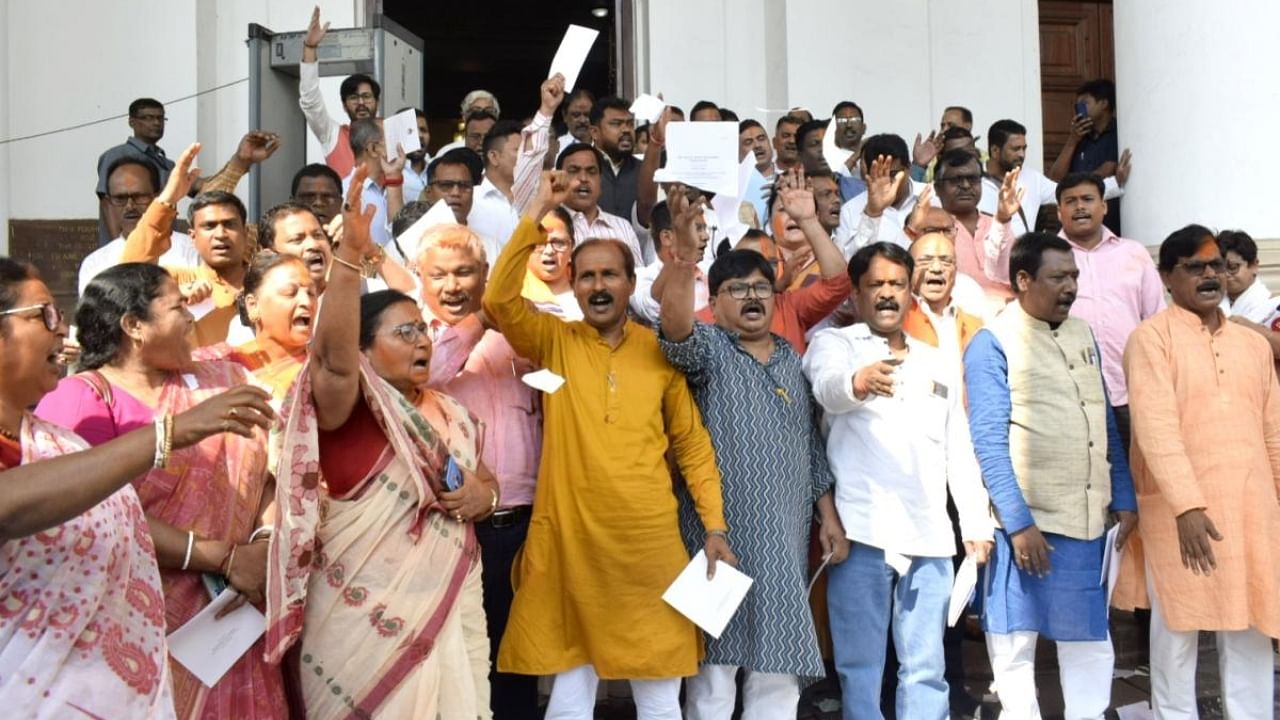
A day after 'Modi-Modi’ chants were raised in the West Bengal Legislative Assembly by BJP-Bengal MLAs, Prime Minister Narendra Modi figured again, on Saturday, during a discussion on the state's agriculture budget.
Bengal agriculture minister Sobhandeb Chattopadhyay stated that while the state has a higher population, and comparatively lesser land, with the majority of farmers being small farmers, yet the state has been able to facilitate the tripling of farmers’ incomes.
Chattopadhyay said that the prime minister had promised to double farmers’ incomes in two years, but the state has succeeded in having it tripled. The minister further claimed that Bengal stands at the top in agriculture considering important parameters, in the league of major states.
On Friday, BJP MLAs having taken offence to a minister’s statement in the House, that they considered a ‘personal attack’ on the prime minister, had chanted, ‘Modi-Modi’.
The references to issues that obliquely draw in the party in power at the Centre also cropped up during a discussion of budget on industry, commerce and enterprises.
Shashi Panja, minister of the department concerned, later, speaking about the discussion in the House, said that it appeared that Bengal was being spoken about negatively, selectively, with the national economic scenario being ignored.
Panja said that those (the BJP in the Opposition) who are questioning the state, have yet to answer important questions. She said two industrialists, perceived to be close to the prime minister, were able to leave the country, and asked, when will they be brought back. She asked if the money deposited by commoners in a leading public sector bank and at an insurance company was secured – the answers are awaited.
Invoking investor George Soros, whose statement recently drew controversy, Panja referred to his reflexivity theory (which suggests that investors' decisions have more to do with perceptions of reality than the reality itself) and said that our perceptions could be flawed but could still affect reality.
The minister linked this to the situation in the state that by talking negatively about Bengal, a narrative could make people think likewise about the state, and some people can take advantage – economic, or political.